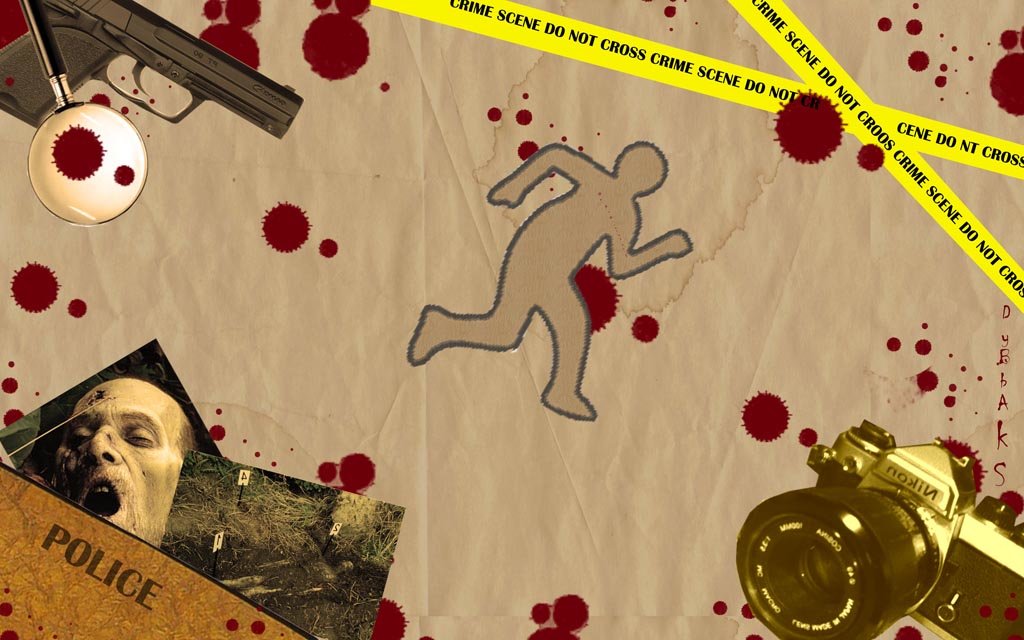Excreted and secreted bodily fluids are examined through the investigations by forensic serology specialists. The working conditions are somehow special. Usually, the program is a standardized 40 hours per week set schedule for a law enforcement agency either private or public institution. However, when there is a high case load it will be necessary to work extra hours in orer to perform the investigative pattern on time. Most of the process takes place in the lab, but there are occasional visits to the crime scenes whenever the evidence is not conclusive, self-explanatory or needs further investigation on the field.
Among the responsibilities of a forensic specialist in serology the most important are testing samples brought by crime scene investigators in the labs and examining evidence in order to find viable bodily fluids. After identifying evidence, before examining it in order to sustain the investigation, the viability of the evidence has to be determined. There are some certain situations in which the amount of fluid is not enough for the testing to be conducted or the material is contamined and the results would not be reliable. In this case, the samples have to be analyzed under a microscope and use alternative equipment to make the drug testing and establish if the bodily fluids are relevant for the ongoing investigation. Another highly important responsibility of the forensic serologist consists in writing the final report in which the investigation and its conclusions are being summarized as well as, whenever it is necessary, testifying in court as expert witness case in which the relevance of the evidence has to be explained in such way to be both scientifically accurate and understandable for those who lack specific knowledge in the field.
Strictly linked with the responsibilities of the job are the skills that are truly important in accomplishing the job tasks among which strong people skills and communication skills. Because the investigation itself is not very relevant unless it is proven so, one of the most critical skill is being able to explain the progress provided by the results of the investigation for the ongoing process. Collaborating with other specialists in solving tasks requires the capacity to understand the perspective of the investigation as a whole, goal for which it is crucial to communicate in order to evolve. Organizational skills are also crucial, given the high number of tasks in a short period of time and the fact that sometimes working under pressure cannot be avoided and has to be coped with effectively. Working on several samples at a time is very inconvenient and not everybody can manage situations like these, especially since deadlines are highly important in the job and the decision of a criminal investigation can hang on each of its parts.

The employers who most likely need a forensic serology specialist include law enforcement institutions, private crime labs and the military service. The junior position in the field is working in forensic serology as a technician and requires exclusively lab work – analyzing and identifying relevant evidence for a case from the clues that have been found at crime scene. With experience, not only the salary (from $37, 000 to approximately $60,000 a year) but the spectrum of activities. A senior employer coordinator of the serology activity for an institution has access at the crime scene and communication / lobbying responsibilities concerning the results of the investigation and their importance in the case / for the company or institution.
Once a student has the necessary experience to be hired as a forensic serology technician, after working in the field a transfer to specialize in DNA forensics is also possible. Since the differences are not fundamentally different, a re-qualification is possible and a lack of jobs on the market force can always be followed by a change of direction.
The good news is that changing careers from Forensic Serology to Forensic DNA Specialist doesn’t require too much extra qualification and, depending on what the Bachelor’s Degree specializes the future employer in, other extra studies might not even be necessary. Of course, another highly important factor in changing careers from serology to DNA is taking into consideration the size of the entity that is going to hire you, as local institutions for instance can have the same person work for both specializations. Educationally speaking there are some Master Degrees programs that are meant to specialize the future expert in both DNA and Serology in order to increase the chances of labor market absorption. Taking into consideration the cases in which the hiring institution or company is important enough to conduct various investigations at a time requiring the works of both DNA and serology specialists in forensic activity, changing careers can require performing a somewhat different kind of job – the evidence that is being analyzed from a job to another can differ enough so that if the major of the employer isn’t in anatomy of biochemistry the chances of needing extra qualification besides the practical skills required in the job description are higher. However, there have been many cases of such changes and especially if the formal educational background fits to the requirements of both job descriptions, no extra qualification is needed before making this change in position.




